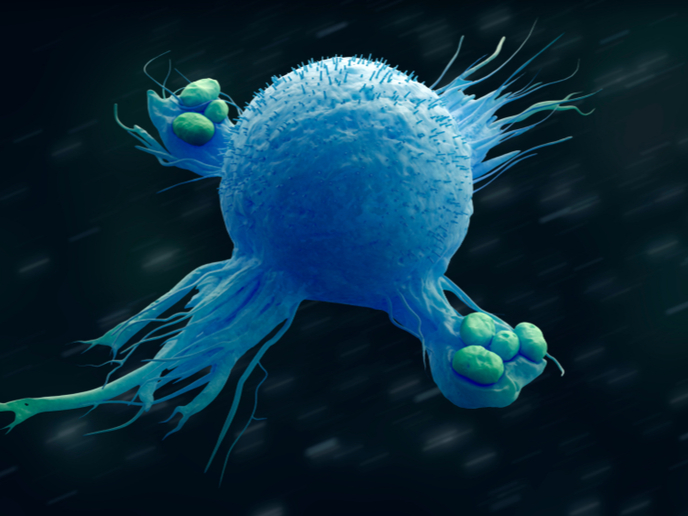Energy sensing in prostate cancer
Cancer cells exhibit an aberrant cellular metabolism in terms of anaerobic use of glucose in the presence of oxygen. This phenomenon, known as the Warburg effect, was initially described over 100 years ago but has recently regained momentum. We now know that oncogenes as well as tumour suppressors maintain metabolic homeostasis and that alterations in these genes result in a metabolic switch. The kinase LKB1 constitutes a metabolic tumour suppressor of increasing interest. It regulates the central energy sensor in the cell, AMP-activated protein kinase (AMPK), which in turn switches on a tumour suppressive programme. Mutations in LKB1 have been identified in various cancer types and, as a result, it constitutes an attractive therapeutic target. In this context, scientists on the EU-funded PTENLKB1 (Implication of energy sensing pathways in prostate cancer biology) project used genetically engineered mouse models, cellular systems and human specimens to investigate the tumour suppressive activity of LKB1 in prostate cancer. Project results revealed an altered LKB1 protein expression in a significant fraction of prostate cancer biopsies, reinforcing its implication in prostate epithelial cell transformation. Genetic restoration of LKB1 function in cells with pathway deficiency unveiled an exquisite regulation of cell fate by LKB1, and the potential of AMPK-activating drugs to correct the phenotype. Molecular insight into the mechanism underlying LKB1 loss of function disclosed important information about the downstream pathways and points towards novel therapies. Overall, PTENLKB1 findings provided novel knowledge on the molecular aetiology of prostate cancer. The identification of LKB1 as a tumour suppressor opens new avenues of therapeutic exploitation that long term could improve clinical outcome.







